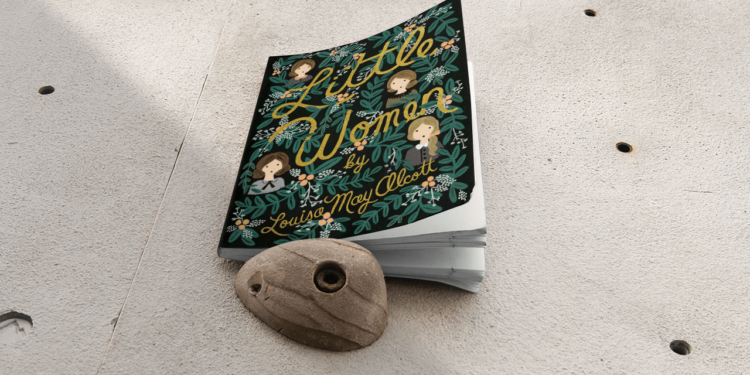Louisa May Alcott, an iconic American author, continues to captivate readers across generations with her timeless works. Born on November 29, 1832, in Germantown, Pennsylvania, Louisa May Alcott’s life was a tapestry of intriguing experiences and remarkable achievements. Her literary genius, coupled with her progressive views on gender roles and social justice, make her an enduring figure in American literature. In this article, we delve into the enigmatic life of Louisa May Alcott, exploring her biography, lesser-known facts, personal relationships, cultural impact, and more.
Louisa May Alcott’s Biography: Early Life, Family, and Education
Louisa May Alcott’s early life was marked by a nomadic existence. Her father, Amos Bronson Alcott, was a renowned philosopher and educator, while her mother, Abigail May Alcott, was a social worker and women’s rights advocate. Louisa grew up amidst the transcendentalist movement, which shaped her worldview and influenced her writing. Despite their intellectual pursuits, the Alcott family faced financial hardships, oscillating between periods of prosperity and poverty.
Louisa May Alcott’s education was largely informal, with her father taking on the role of her primary teacher. She received a rich literary education, engaging with the works of renowned authors such as Ralph Waldo Emerson and Henry David Thoreau. Louisa’s passion for writing blossomed during her formative years, and she penned numerous stories and plays, often performed by her family.
Exploring Louisa May Alcott’s Intriguing Tidbits and Lesser-Known Facts
While many are familiar with Louisa May Alcott’s literary accomplishments, there are intriguing tidbits and lesser-known facts that offer a deeper understanding of her life. For instance, did you know that Louisa May Alcott served as a nurse during the American Civil War? Her experiences at a Union hospital in Washington, D.C. inspired her to write the semi-autobiographical novel “Hospital Sketches.”
Furthermore, Louisa May Alcott was an advocate for women’s suffrage and social reform. She was one of the first female registered voters in Concord, Massachusetts. Louisa also had a close friendship with renowned abolitionist Frederick Douglass, exchanging letters and supporting each other’s causes.
Louisa May Alcott’s Love Life and Friendships: Unveiling her Personal Relationships
Louisa May Alcott’s personal relationships played a significant role in shaping her life and writing. While she never married, Louisa had numerous close friendships, some of which bordered on romantic. One such friendship was with the writer and reformer Anna Alcott Pratt, who was Louisa’s “lover and sister” as described by their mutual friend Henry David Thoreau. The nature of their relationship remains a subject of speculation and debate among literary scholars.
Apart from Anna Alcott Pratt, Louisa May Alcott formed deep connections with fellow writers and intellectuals of her time. She corresponded with Nathaniel Hawthorne, Ralph Waldo Emerson, and Henry David Thoreau, among others. These friendships provided her with intellectual stimulation and support throughout her life.
Louisa May Alcott’s Cultural Impact: Influencing Literature and Beyond
Louisa May Alcott’s cultural impact extends far beyond her literary contributions. Her most famous work, “Little Women,” continues to inspire readers worldwide with its portrayal of female empowerment, family dynamics, and coming-of-age themes. The novel’s enduring popularity has led to numerous adaptations in film, television, and stage, showcasing Louisa’s ability to resonate with audiences across generations.
Furthermore, Louisa May Alcott’s progressive views on gender roles challenged societal norms of her time. Through her strong female characters and their pursuit of personal and professional fulfillment, she paved the way for future generations of women writers and activists.
Louisa May Alcott’s Best Quotes: Insights into her Wisdom and Philosophy
Louisa May Alcott’s writing is replete with wisdom and profound insights. Here are some of her best quotes that offer a glimpse into her philosophy:
- “I am not afraid of storms, for I am learning how to sail my ship.”
- “Love is a great beautifier.”
- “I’d rather take coffee than compliments just now.”
- “I am not a ‘little woman.’ I am a person.”
- “I am not a story-teller. I am a story-weaver.”
These quotes highlight Louisa May Alcott’s resilience, belief in love, and determination to assert her individuality in a world that often marginalized women.
Louisa May Alcott’s Literary Works: Lists and Brief Descriptions of Her Five Best Books
Louisa May Alcott’s literary repertoire encompasses a diverse range of works beyond “Little Women.” Here are five of her best books that showcase her versatility and storytelling prowess:
- “Little Men” (1871): A sequel to “Little Women,” this novel follows Jo March as she establishes a school for boys and explores themes of education and personal growth.
- “Eight Cousins” (1875): This charming novel revolves around Rose Campbell, an orphan who discovers newfound family connections and navigates the challenges of adolescence.
- “Jo’s Boys” (1886): Concluding the March family saga, this book delves into the lives of Jo’s children and their pursuit of happiness and fulfillment.
- “Work: A Story of Experience” (1873): Louisa May Alcott draws from her own life experiences in this semi-autobiographical novel, exploring the struggles and triumphs of a young woman navigating the workforce.
- “An Old-Fashioned Girl” (1870): This novel contrasts the lives of two young women, Polly and Fanny, highlighting the virtues of simplicity and integrity in the face of societal pressures.
Each of these books showcases Louisa May Alcott’s ability to create relatable characters and explore themes of personal growth, independence, and societal expectations.
The Main Places Where Louisa May Alcott’s Books are Set: Immersive Settings and their Significance
Louisa May Alcott’s books often feature vividly depicted settings that add depth and meaning to her narratives. Here are some of the main places where her books are set:
- Concord, Massachusetts: As Louisa’s hometown, Concord serves as the backdrop for many of her stories, including “Little Women” and “Little Men.” The town’s idyllic charm and natural beauty provide a sense of nostalgia and community.
- Plumfield: Located in the fictional town of Plumfield, “Little Men” explores the setting of an unconventional school for boys. Inspired by Louisa’s father’s educational principles, Plumfield represents a haven for personal growth and unconventional learning.
- Rome: In “The Marble Faun,” Louisa May Alcott transports readers to the vibrant city of Rome, showcasing her talent for vivid descriptions and atmospheric settings. The city’s history and cultural significance add layers of complexity to the novel’s themes of art, morality, and identity.
These settings serve as more than mere backdrops; they become integral to the stories, shaping the characters and the messages conveyed.
The Journey of Louisa May Alcott’s Writing Career: From the First Book to the Last
Louisa May Alcott’s writing career spanned several decades, marked by perseverance, creativity, and the exploration of diverse genres. Her journey as a writer began with the publication of her first book, “Flower Fables,” in 1854. This collection of fairy tales, written for Ralph Waldo Emerson’s daughter, showcased Louisa’s imaginative storytelling abilities.
Throughout her career, Louisa continued to experiment with different genres and themes. From her gothic novella “Behind a Mask” to her historical fiction “A Long Fatal Love Chase,” she pushed the boundaries of conventional storytelling.
As Louisa May Alcott’s career progressed, she honed her skills and found her voice in the realm of family stories and domestic fiction. It was in this genre that she achieved her greatest success with “Little Women,” solidifying her place in literary history.
The Screen Adaptation of Little Men: Exploring the Cinematic Connections of Louisa May Alcott’s Works
Louisa May Alcott’s novels have been adapted numerous times for the screen, bringing her stories to life in a visual medium. One notable adaptation is the film version of “Little Men” released in 2016. Directed by Ira Sachs, the movie captures the essence of Louisa’s original work while adding a contemporary touch.
The film explores themes of friendship, loyalty, and the challenges faced by children growing up in an ever-changing world. The screen adaptation of “Little Men” serves as a testament to the enduring appeal of Louisa May Alcott’s narratives and their ability to resonate with audiences across different mediums.
Artists Who Inspired Louisa May Alcott: Exploring Other Creatives who Influenced her Writing
Louisa May Alcott drew inspiration from various artists and creatives, who shaped her writing style and thematic choices. One such artist was Margaret Fuller, a prominent feminist and transcendentalist thinker, whose ideas on women’s rights and self-fulfillment influenced Louisa’s own views and writing.
Additionally, Louisa found inspiration in the works of Charles Dickens, whose vivid storytelling and social commentary left a lasting impression on her. His portrayal of characters from all walks of life resonated with Louisa’s own exploration of the human experience.
Other Writers and Books to Explore If You Liked Louisa May Alcott: Recommendations for Further Reading
If you find yourself enchanted by Louisa May Alcott’s works, here are five other writers and books that are sure to capture your imagination:
- Jane Austen – “Pride and Prejudice”: Like Louisa May Alcott, Austen explores themes of love, family, and societal expectations through her witty and insightful writing.
- Harper Lee – “To Kill a Mockingbird”: This classic novel delves into issues of race, prejudice, and the moral growth of its young protagonist, Scout Finch.
- L.M. Montgomery – “Anne of Green Gables”: Montgomery’s beloved series follows the adventures of Anne Shirley, an imaginative and spirited young girl, as she navigates life in a small Canadian town.
- Charlotte Brontí« – “Jane Eyre”: Brontí«’s gothic romance is a timeless tale of love, independence, and resilience, with a fiercely independent heroine at its core.
- Mark Twain – “The Adventures of Huckleberry Finn”: Twain’s iconic novel explores the themes of freedom, friendship, and moral growth through the eyes of its young protagonist, Huck Finn.
These authors and their works share thematic similarities with Louisa May Alcott, making them perfect choices for further exploration.
A Buying Guide and Gift Ideas for Louisa May Alcott Fans: Perfect Presents for Enthusiasts
If you’re looking to celebrate the enduring legacy of Louisa May Alcott and surprise a fan with the perfect gift, here are some ideas:
- “The Complete Novels of Louisa May Alcott”: This comprehensive collection allows fans to immerse themselves in the complete works of Louisa May Alcott, from her beloved classics to her lesser-known gems.
- “Little Women” Movie Adaptation Box Set: This box set includes various film adaptations of “Little Women,” allowing fans to experience the story through different interpretations and performances.
- Louisa May Alcott-inspired merchandise: From t-shirts featuring quotes from her novels to literary-themed accessories, there is a wide range of merchandise available that celebrates Louisa May Alcott’s legacy.
Conclusion: The Enduring Legacy of Louisa May Alcott
Louisa May Alcott’s life and works continue to captivate readers around the world. From her humble beginnings to her literary achievements, Louisa May Alcott’s legacy is one of resilience, creativity, and progressive thinking. Her stories, characters, and ideas transcend time, inspiring generations of readers and writers. As we delve into the enigmatic life of Louisa May Alcott, we gain a deeper appreciation for her contributions to literature, cinema, and society as a whole.










